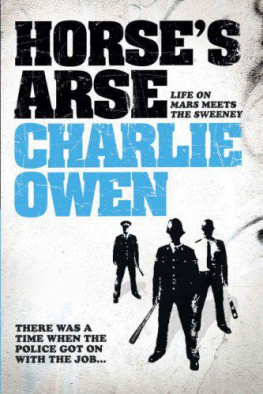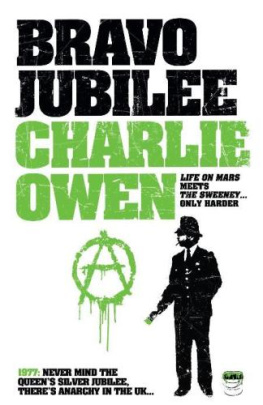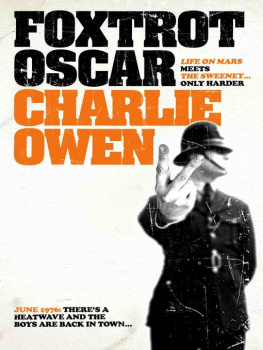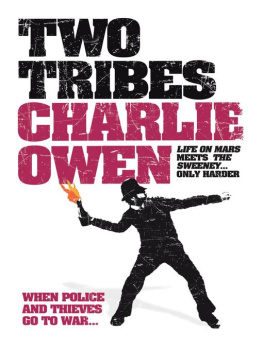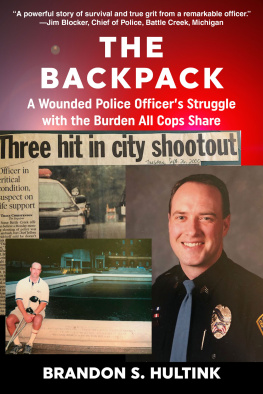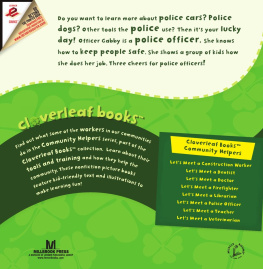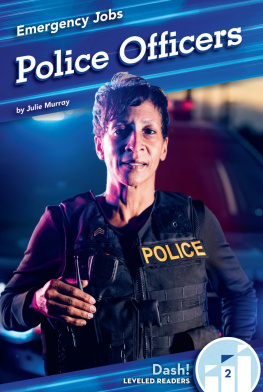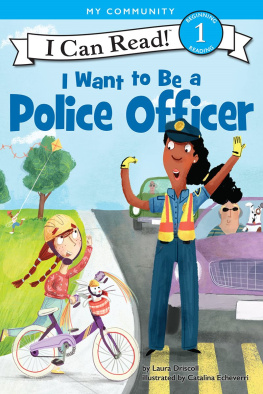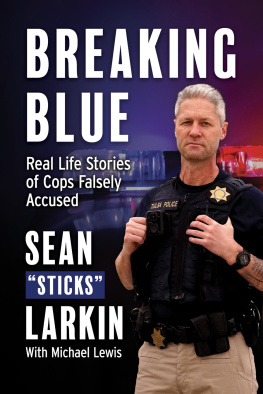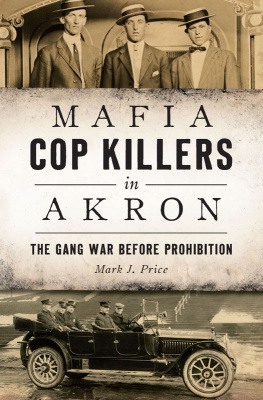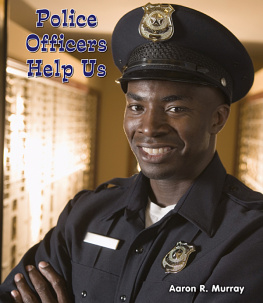Horses Arse
Charlie Owen

Copyright 2007 Charlie Owen
The right of Charlie Owen to be identified as Author of
this work has been asserted by him in accordance with the
Copyright, Designs and Patents Act 1988.
First published in 2007
by HEADLINE REVIEW
An imprint of HEADLINE PUBLISHING GROUP
Apart from any use permitted under UK copyright law,
this publication may only be reproduced, stored, or transmitted,
in any form, or by any means, with prior permission in writing of
the publishers or, in the case of reprographic production, in accordance
with the terms of licenses issued by the Copyright Licensing Agency.
All characters in this publication are fictitious and any resemblance
to real persons, living or dead, is purely coincidental.
Cataloguing in Publication Data is available from the British Library
978 0 7553 3681 4 (hardback)
978 0 7553 3683 8 (trade paperback)
Typeset in AGaramond by Avon DataSet Ltd,
Bidford on Avon, Warwickshire
Printed and bound in Great Britain by Mackays of Chatham plc, Chatham, Kent
Headline's policy is to use papers that are natural, renewable and recyclable
products and made from wood grown in sustainable forests. The logging
and manufacturing processes are expected to conform to the
environmental regulations of the country of origin.
HEADLINE PUBLISHING GROUP
A division of Hachette Livre UK Ltd
338 Euston Road
London NWl 3BH
Table of Contents
Acknowledgements
I first sat down to write this book a few years ago to fill my days off work whilst I recovered from an operation on my back that had gone wrong. The idea of writing a book came initially from my wife who was probably increasingly fed up with my 'cabin fever'. Had she not pushed me, I doubt Horse's Arse would have seen the light of day some might say she has a lot to answer for.
I also owe my sincerest thanks to two old friends, Martin and Tracey Kosmalski, who looked after me during an awful period and helped get me back on the path to recovery. They helped me get admitted to the Lister Hospital in Stevenage, and it was there that I began to recover from my illness. Some of the book was written whilst I was there and I thank Martin, Tracey and their daughters Jo and Gemma for their support and friendship at a difficult time.
Vast amounts of the book were written at the Police Convalescent Home at Goring where I spent some considerable time recovering. My thanks to the staff there and to my fellow 'raspberries' and 'window lickers' who offered encouragement when they became aware I was attempting to write a book. Here it is: I hope you enjoy it!
I also owe a huge debt to my friend Richard Tucker, who pestered many of his contacts in the publishing business and eventually got in to see Kerr McRae and Martin Fletcher at Headline. They had a punt on an outsider and I hope this Horse comes in for them!
Finally, I offer thanks to my wife Karen. She has been my sounding board, constructive critic and proofreader throughout the writing of this book. She knows it inside out, probably as well as I do, and still laughs at the same passages. She has encouraged and supported me throughout and I dedicate this book to her.
This novel is from start to finish entirely a work of my imagination and the characters, companies and their actions in the story are entirely fictional.
Foreword
This is a story about a fictional sub-divisional police station, set in a fictional county in the mid 1970s. The sub-division is phonetically known as Hotel Alpha, but such is the disdain the officers feel for the town they police, it is generally referred to as Horse's Arse.
If the world had an arse, then Hotel Alpha would be its piles.
It is not a popular posting, generally reserved for the more aggressive and belligerent officers of the Force.
This is an account of how the Job used to be done. This is the way it was, but never will be again.
Prologue
Handstead lay about fifteen miles north of Manchester from which the town had been aggressively populated and expanded during the 1950s, when a far-sighted Manchester City council had indulged itself in early ethnic cleansing and moved thousands of its most troublesome tenants out into the sticks.
Promises of a new life in new homes, and even jobs in the burgeoning petro-chemical industry, had drawn them like flies round a dog turd to the brave new world that was Handstead. The ancient old town that had merited a mention in the Domesday Book all but vanished under the concrete sprawl of the New Town.
The dream proved short-lived, and by the early 1970s and the departure of its major employer the town was a waste of ghettolike estates, desolate windswept shuttered shopping parades and looming tower blocks. Many of its inhabitants, long since released from the burden of gainful employment, lived out their lives in alcoholic and drug-induced hazes between trips to pick up what the state gave them without question. Their benefits were supplemented by petty and occasionally serious crime, robbing and raping each other and creating a reputation for themselves that spread to all corners of the county and beyond.
Handstead villains, men and women, had spread the word and their exploits were related with pride from generation to generation.
Without question the very worst of the estates was the Park Royal. With its solitary pub, depressing regulation shopping parade, featureless council houses, unkempt gardens and abandoned cars, the estate was home to some six thousand inhabitants. The few decent souls amongst them lived out their lives in silent fear, dreaming of the day Handstead Council rehoused them. The place was a dump and the local police had done little to address the problems. Efforts to house a home beat officer and his family on the estate were quickly abandoned, after the house was stoned and the officers children were attacked in their front garden. Why the locals were so anti-police wasn't immediately obvious, but over the years the mutual hatred between the residents of Handstead in general and the Park Royal in particular and the local police had gone unresolved.
The Forces answer had been to use Handstead as its penal colony, and the town was therefore policed by a motley collection of alcoholic, sexually promiscuous and generally undisciplined misfits. None of them laboured under any misapprehension as to their place in the food chain either. They knew they had been condemned to spend their careers at Horses Arse; some because they were serving 'sentences' for offences committed elsewhere, others because that was how the dice had rolled when their initial postings were being decided. Blissfully unaware, they were almost true Stoics. Powerless to do anything about their fate, they calmly accepted the inevitable shitty end of the stick and tried to make the most of their situation. The attempt regularly manifested itself in outrageous abuses, but they took a perverse pride in policing Horse's Arse notwithstanding. They recognised better than most what a hopeless task they faced, but revelled in their Canute-like resolve to hold the tide of shit at bay as best they could. They made a difference, albeit a small one, and enjoyed the 'rather you than me mate' looks they got from colleagues who worked elsewhere. It never occurred to any of them to apply to transfer out of the sub-division. What would be the point? It would never be allowed: they were destined to stay there so best get on with it. How often had they been told, 'If you can't take a joke you shouldn't have joined the Job'? Some joke. They recognised their own frailties, but that was where they parted from the ancient doctrine of the Stoics. The faults of others, particularly the local villains, were never forgiven and they were policed with extreme prejudice. Making a difference: that's what it was all about for the Handstead force.
Next page
